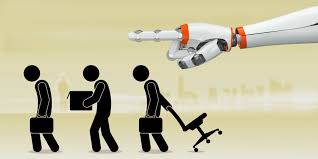
Breaking News
 Nancy Pelosi has officially announced her RETIREMENT at the end of her term, January 3, 2027.
Nancy Pelosi has officially announced her RETIREMENT at the end of her term, January 3, 2027.
 Omeed Malik: The Technocrat Muslim Billionaire Inside MAGA
Omeed Malik: The Technocrat Muslim Billionaire Inside MAGA
 Democrat-led government shutdown is now causing flight delays, threatening air traffic control,...
Democrat-led government shutdown is now causing flight delays, threatening air traffic control,...
Top Tech News
 HUGE 32kWh LiFePO4 DIY Battery w/ 628Ah Cells! 90 Minute Build
HUGE 32kWh LiFePO4 DIY Battery w/ 628Ah Cells! 90 Minute Build
 What Has Bitcoin Become 17 Years After Satoshi Nakamoto Published The Whitepaper?
What Has Bitcoin Become 17 Years After Satoshi Nakamoto Published The Whitepaper?
 Japan just injected artificial blood into a human. No blood type needed. No refrigeration.
Japan just injected artificial blood into a human. No blood type needed. No refrigeration.
 The 6 Best LLM Tools To Run Models Locally
The 6 Best LLM Tools To Run Models Locally
 Testing My First Sodium-Ion Solar Battery
Testing My First Sodium-Ion Solar Battery
 A man once paralyzed from the waist down now stands on his own, not with machines or wires,...
A man once paralyzed from the waist down now stands on his own, not with machines or wires,...
 Review: Thumb-sized thermal camera turns your phone into a smart tool
Review: Thumb-sized thermal camera turns your phone into a smart tool
 Army To Bring Nuclear Microreactors To Its Bases By 2028
Army To Bring Nuclear Microreactors To Its Bases By 2028
 Nissan Says It's On Track For Solid-State Batteries That Double EV Range By 2028
Nissan Says It's On Track For Solid-State Batteries That Double EV Range By 2028
Robots Are Coming for Our Jobs. Thank Goodness.

Technological progress has frequently resulted in changes in the nature of work, sometimes affecting skilled workers more and sometimes affecting unskilled workers more. But whichever categories of worker were affected, such changes have almost universally been to the benefit of workers of all skill levels. Let's consider two or three professions of the past.
Take the "tanner." Before technology transformed the nature of such work, Wikipedia tells us that tanning "was considered a noxious or 'odoriferous trade' and relegated to the outskirts of town, amongst the poor… The ancient tanner might use his bare feet to knead the skins in dung water, and the kneading could last two or three hours."

 The Technocratic Dark State
The Technocratic Dark State Carbon based computers that run on iron
Carbon based computers that run on iron

